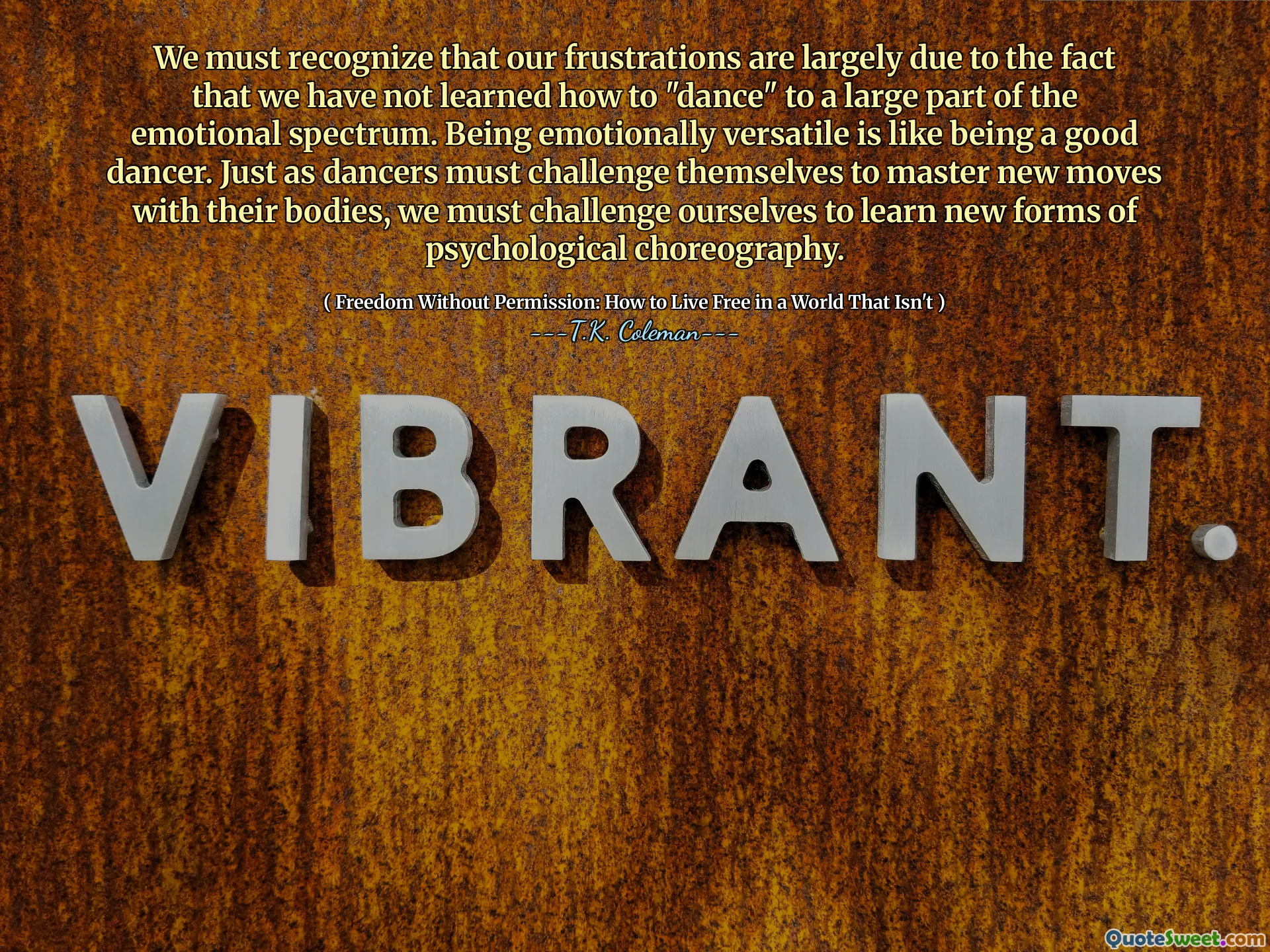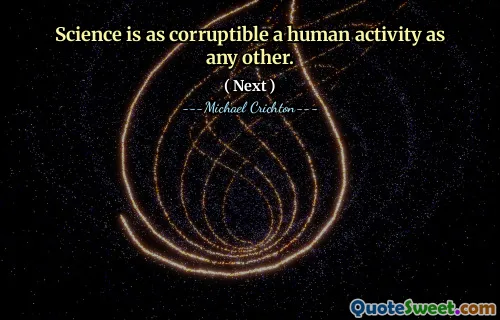
We must recognize that our frustrations are largely due to the fact that we have not learned how to "dance" to a large part of the emotional spectrum. Being emotionally versatile is like being a good dancer. Just as dancers must challenge themselves to master new moves with their bodies, we must challenge ourselves to learn new forms of psychological choreography.
This quote highlights the crucial but often overlooked skill of emotional adaptability. Just as dancers must continually learn and refine their movements to express themselves fully and gracefully, we too must engage with and understand the breadth of our emotional experiences. Frustrations frequently arise not because emotions themselves are problematic, but because we resist or fail to understand certain moods or feelings. This metaphor of "dancing" with emotions suggests an active, skillful process rather than a passive or reactive one. Developing emotional versatility requires deliberate practice, much like perfecting a dance routine, where each step symbolizes a new psychological skill or insight.
Recognizing emotions as part of a broader spectrum challenges the societal tendency to categorize feelings as simply good or bad. Instead, every emotion, whether joy, sadness, anger, or anxiety, has its place and purpose. By metaphorically dancing with these feelings, we integrate them into our lives, allowing a more nuanced and flexible emotional experience. Such mastery over our internal world not only reduces frustration but also enriches personal growth, creativity, and interpersonal relationships.
The comparison invites us to see emotional intelligence not as a fixed trait but as an evolving art form—"psychological choreography"—that requires courage, patience, and openness. Ultimately, it empowers us by framing emotional challenges as opportunities to learn and grow rather than obstacles, encouraging a life lived with freedom and permission to fully experience the emotional spectrum.


